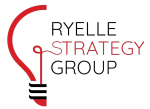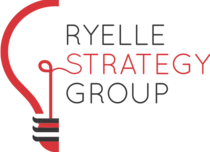Unlock your organization’s potential through a comprehensive governance review
By: Ryelle Strategy Group
A board of directors is responsible for providing leadership and oversight for an organization’s strategic goals. Known as governance, this represents the structure of processes, rules, and practices that guide how an organization operates. Rather than something that is established when an organization is founded but never revisited, governance principles must be continually assessed.
A change in board composition or concerns over issues such as decision-making processes or the use of the board’s time can be the impetus for a review. Similarly, if the organization seeks to re-evaluate its organizational objectives, benchmark its performance against others in the sector, or has a change in strategic direction, the board might choose to engage an expert to guide a review process.
Good organizational governance—the act of operating transparently and fairly—is an integral part of building trust in your organization and its sustainability. Performing a governance review is vital to ensuring that your organization’s legal and decision-making processes conform with best practices. A comprehensive assessment engages the board of directors and executive staff in a review of an organization’s state of governance, ideally guided by an external governance expert.
So, what’s the value of a governance review and what does this process entail? Let’s take a closer look.
What is a governance review?
A governance review measures an organization’s current performance against best practices to assess the state of governance and identify areas to improve practices. This process is not only about validating an organization’s continued compliance with regulations; it also examines its culture and core strategy to evaluate if practices in these areas are helping the organization carry out its mission.
An effective governance review must establish a clear set of objectives, be carried out through a tested process (ideally by a third-party consultant) and conclude with a plan for improvement that outlines clear and reasonable recommendations. A governance review covers questions such as:
- Does the company have an appropriate governance structure in place?
- Is the current governance structure helping or hurting the organization’s performance and strategy?
- What are areas of improvement in the current governance process?
- Are there clear roles and responsibilities for board members, executives, and management?
- Are the company’s policies and procedures consistent with best practices, applicable laws regulatory requirements?
- Does the company have adequate risk management and internal control systems in place?
- Does the company have an effective system for monitoring and evaluating performance?
- Is the company’s reporting and disclosure accurate, timely, and transparent?
Why and when does an organization need a governance review?
Just as an organization should routinely go through strategic planning to ensure that current programs and services align with the vision and mission, it’s good practice to assess whether the current governance structure is working effectively for the organization, as well as to invite new ideas that will improve productivity at a board level. A governance review can also be an effective tool for workplace evolution when an organization is looking to kickstart a larger transformation process and wants to explore what works or what doesn’t with the current structure.
Our governance experts at Ryelle recommend undergoing an in-depth governance review at least every three to five years, as well as scheduling a less formal annual review and reporting on board performance benchmarks.
The benefits of a governance review include:
- Improved governance practices
- Better risk management
- Increased regulatory compliance
- Improved financial performance
- Enhanced reputation
- Identified areas of improvement
What are the elements of a governance review?
1. Get buy-in from all stakeholders and set objectives for the governance review
There is no “one size fits all” for governance reviews. The process is guided by the objectives established at the outset by the board. Since a governance review is an investment of time and resources with the goal of improving and advancing the organization, all key stakeholder groups—including board members, executives and senior staff—must be committed to participating in the process. The board will often form a special governance committee to engage an external expert with knowledge and experience in governance to facilitate the review.
2. Identify current state
To set a baseline for how the board functions in its current structure, the governance expert will begin by performing a gap analysis and observing a board meeting. They will also review existing organizational assets to ensure that all processes pertaining to board member assessments, board size, terms of office, succession planning, and codes of ethics are still valid and meet legal requirements.
This helps the consultant gain an understanding of how governance operates for this organization. In some cases, this may uncover the absence of documentation or processes necessary to meet good governance requirements.
3. Engage key stakeholders
The governance expert will engage directly with key stakeholders such as board members, executive leadership, and senior staff, using methodologies such as surveys, interviews, and focus groups. This part of the process investigates how the board functions, such as how board meetings are run, how board committees and expertise is used to support decision-making, and how the board interacts with the organization’s staff. Sometimes this process will include funders, partners, and members of the community.
Surveys allow stakeholders to rate experiences with the organization on a variety of measures. Confidential interviews are a space to share perspectives on what works, what doesn’t work, and what are areas for improvement. Focus groups can encourage constructive conversation about how the organization is operating through focused conversations around core strategy.
4. Review recommendations and create an action plan for implementation
After observing the current state and engaging with key stakeholders, the governance expert will formulate a set of recommendations to improve board governance operations. These recommendations typically identify areas of improvement around policies and procedures and set new objectives. It is then up to the board to decide which recommendations they will choose to implement and create an action plan to adopt these changes.
Engage Ryelle’s Governance Review Experts
A governance review is best facilitated by an external governance expert to ensure that organizations are guided by an objective perspective and benefit from impartial external facilitation. Ryelle’s premier full-service client experience model enables organizations to find the right solution for them.
Our governance review services include carrying out governance audits, board evaluations, risk assessments, compliance reviews, extensive stakeholder engagement, performance evaluations and providing recommendations for improving the organizations overall governance practices.
Could your organization benefit from a governance review? Reach out to us today to learn more.


